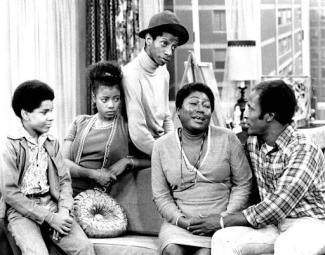
When "Good Times" first aired on February 8, 1974, it broke new ground. The show rejected negative stereotypes of Black characters and gave voice to working-class Black American families.
"Good Times" addressed social issues honestly. Poverty, crime, unemployment, child abuse, drug addiction — no topic was off limits. And yet, the show still managed to highlight Black joy and celebrate the culture.
The show was also unifying. "Good Times" grew a large and loyal following across economic and racial lines. It showed that Black families had nuanced relationships with racial disparities and that they experienced poverty in the same ways as many other families.
However, the show was not perfect.
As the show evolved, John Amos, who played the family patriarch James Evans, was fired for voicing concerns about the show. Creative differences over his character, the JJ Evan character played by Jimmy Walker, and plot development caused a rift between the all-white writing staff and Amos. Esther Rolle, who played the family’s matriarch later left the show for similar reasons.
The pushback against the reboot of this show and our support of the original "Good Times" reminds us that we control our narratives. Our opinions on how we are portrayed on TV always matter, and we each have a choice in determining what shows are worthy of our support and our resistance.